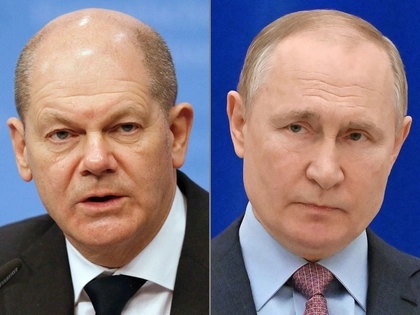In July, dozens of defense ministers, world leaders, and foreign dignitaries gathered in Washington, D.C. to celebrate the 75th anniversary of the North Atlantic Treaty Organization. During the event, NATO members and their partners discussed the significance of the organization, the future of the Alliance, and current global challenges.
The summit came at an essential time as dozens of European countries and the US are holding elections this year. Throughout the 32 member states, various political parties have emerged calling for their countries to ease relations with NATO.
JOIN US ON TELEGRAM
Follow our coverage of the war on the @Kyivpost_official.
Some newly elected officials in Europe have questioned the importance of the Alliance, and have pushed for their countries to pursue isolationism rather than globalism.
How do these European leaders compare to those in the US?Past and current statements and actions by the US presidential candidates have shown that there are differences in opinion.
For example, former President Donald Trump criticized the Alliance. Throughout his tenure, he pushed European countries and Canada to increase their defense spending. The former president argued that the US pays a significant portion of its budget on defense spending and that several other countries should follow suit.
Over time, he became frustrated with his European counterparts. It was even reported that he did not endorse Article 5 within the organization. Instead, he was skeptical about supporting other countries should they need assistance during their time of need. Finally, he was quoted stating that NATO is “obsolete.”

European Troops in Ukraine Could Guarantee Future Peace Deal: Kyiv Official
The former president is now more vocal about on his stance NATO. During a recent campaign event, President Trump criticized European countries that did not meet the 2 percent defense spending guideline outlined by the Alliance. He even vowed “not to help other countries if they faced attacks because” of their failure to meet the defense spending target.
“You don’t pay your bills, you get no protection,” he said during the event. “One of the presidents of a big country stood up [and] said, ‘Well, sir, if we don’t pay and we’re attacked by Russia, will you protect us?’ I said, ‘You didn’t pay, you’re delinquent.’ No, I would not protect you. In fact, I would encourage [Russia] to do whatever the hell they want.”
President Trump’s recent statements have surprised many world leaders and defense ministers. His stance also forced European countries to re-evaluate their national security strategies.
Former Trump administration officials have argued that if he is elected again, he will do what he can to withdraw the US from the Alliance. This would spark fear and chaos among America’s allies and partners.
Finally, during the Republican National Committee in Milwaukee this July, the former president announced his platform on various domestic and foreign policy issues. NATO was never mentioned in the Republican platform.
Stark contrast
For its part, the Biden-Harris administration has taken a different approach to US-NATO relations. Throughout the current term, Vice President Kamala Harris has participated in various conferences and events involving NATO officials.
While at the 2022 Munich Security Conference, the vice president said the US has “an unwavering commitment to NATO and the Alliance.” She has called NATO the “greatest military alliance the world has ever seen,” and urged world leaders to recognize the “value and the importance of [the] NATO Alliance.”
Then, during the 2023 Munich Security Conference, she said that America’s “commitment to NATO and to its Article Five is ironclad.”
In addition, the vice president highlighted how Russian President Vladimir Putin has attempted to fracture the military alliance, particularly during its ongoing invasion of Ukraine. Instead, the relationship between countries in the Alliance has strengthened, and the organization has grown by welcoming two new members.
Finally, during the 2024 Munich Security Conference, the vice president rejected US isolationism. Instead, she argued that “NATO is stronger, larger, more united, and more effective.”
Throughout her time as vice president, she has met with various NATO dignitaries to discuss US commitment to the Alliance, and the future of US-NATO relations.
More recently, Vice President Harris has discussed the US-NATO relationship during the campaign trail. She has argued for the “importance of US engagement in global affairs.” The vice president also emphasized the significance of America’s relationship with its allies and partners. Her team provided additional commentary on NATO during the Democratic National Convention in Chicago in August.
According to the recently released Democratic platform document, the Democrats argued that they will seek to continue strengthening America’s relationship and role within NATO. The party also stated it will seek to restore “American leadership in the world.”
Now, with less than 100 days before the US presidential election, both candidates will hope to persuade American voters as they make their policy positions known to the public. Throughout the Trump-Pence and Biden-Harris administrations, both groups have formed different relationships with NATO.
The policy positions on US-NATO relations are clear, and America’s allies will be following the US elections closely as they wait to see which NATO policy will prevail.
Mark Temnycky is an accredited freelance journalist covering Eurasian affairs and a nonresident fellow at the Atlantic Council’s Eurasia Center. He can be found on X @MTemnycky
The views expressed are the author’s and not necessarily of Kyiv Post.
You can also highlight the text and press Ctrl + Enter






